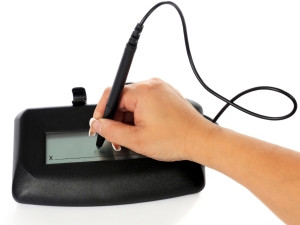
There is more to electronic signatures (e-signatures) than a business reducing its carbon footprint or complying with corporate governance regulation.
This is the view of LAWtrust, an SA-based information security company, which notes that, legally, e-signatures are considered evidence and can be of huge significance in business.
"From a legal perspective, a signature is evidence - it is evidence that you use your name for something and are adopting the content and record," explains Mark Heyink, a guest speaker at a recent information session hosted by LAWtrust and Datafinity that focused on e-signatures.
According to Adobe, e-signatures represent an inexpensive and automated way to finalise contracts and conduct business among trading partners. It adds that this technology empowers those who want to expediently close legally compliant business deals, as customers can sign on the "virtual dotted line" in the blink of an eye.
Adobe also points out that, for several years, legislation in the US, Canada, the EU and the UK has permitted the legal use of e-signatures. In SA, the Electronic Communications and Transactions Act made e-signatures legal in 2002.
"The advantage of electronic signatures, including advanced electronic signatures, is that the identity is evident. In other words, legally, any mark of any nature recognised as an identity is immediately apparent or obvious. Today, the e-signature is so well established that it is inevitably accepted and content adopted," says Heyink.
LAWtrust adds that the benefits associated with the use of electronic signatures include the reduction in admin costs and time delays. This reduction is estimated to be in the region of 50%.
For a business, the investment in electronic signature technology and applications translates into automated workflow, faster processing and turnaround times, better customer service, and less risk to the organisation and users, says LAWtrust.
Maeson Maherry, solutions director at LAWtrust, says in order to reduce personal and company risk, a signature must be a positive act of acceptance and must be visible, verifiable and clear, while identifying the individual. "A good signature will fulfil all these criteria and ultimately be verifiable impartially, forensically and mathematically," he said.
"We are moving into a new era of signatures and legal identification. Infrastructure like the Signature Pad adds substantial value in providing users with an easily managed device that eliminates the need to manually introduce data, that enhances CRM and ERP, and encourages audit control and manageability," Heyink concludes.
Share